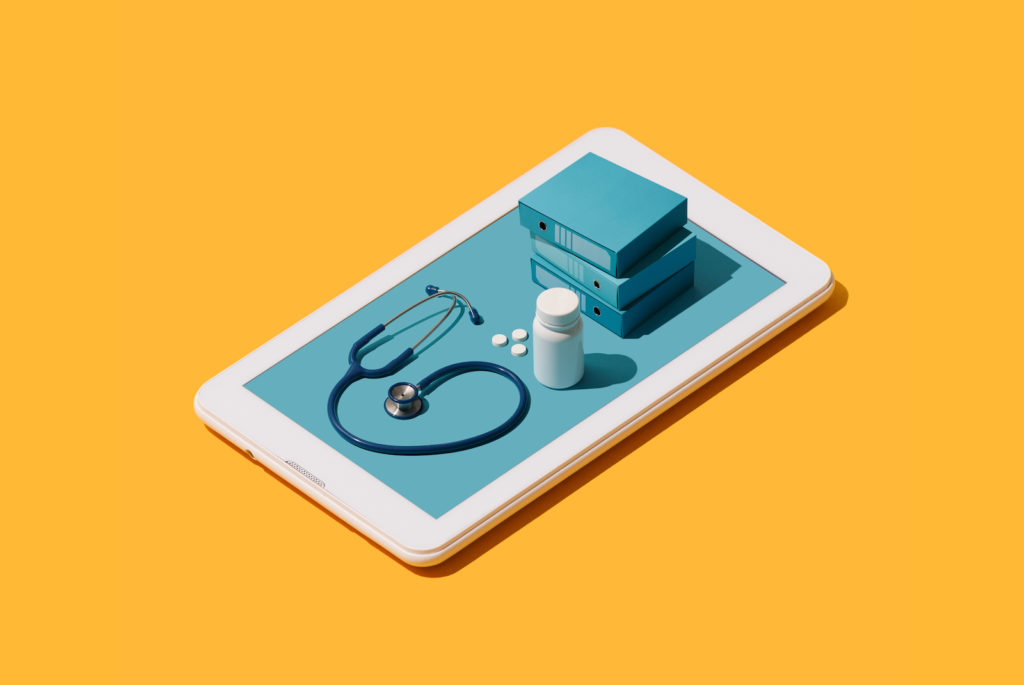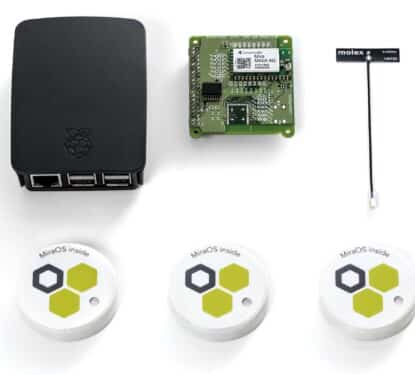Data improves buildings and if your building is a hospital, that improvement leads to saving lives. Data can improve diagnosis, patient care, find staff in an emergency, locate equipment, optimize lighting and air quality, improve staff and patient mood, and increase efficiency to release funds. Each of these data applications plays its part in improving the ability of hospitals to save lives, but the true potential of smart hospitals comes when all building systems are interconnected. That is now the goal of a draft strategy proposed by the British National Health Service (NHS) this summer, in the wake of the worst health crisis in over a century.
"Data saves lives. More effective use of data will deliver better patient-focused care. It will free up staff time to focus on patients and allow clinicians to make better, more informed decisions on treatment and support,” said, now-former Health and Social Care Secretary, Matt Hancock. “The pandemic has taught us we must be bold and the great strides we have made on vaccines and treatments during this time have been made possible by the way we use data. This strategy seeks to put people in control of their own data, while supporting the NHS in creating a modernized system fit for the 21st century which puts patients and staff in pole position."
According to the proposed strategy, patients will gain greater accessibility to their test results, prescribed medications, scheduled procedures and care plans from across the entire healthcare system through the secure NHS App. Through the new digital portal, anyone can manage appointments, refill prescriptions, and speak with healthcare professionals whenever they need. Under the new strategy, healthcare staff can also access the right information when they need it, while carrying a new duty to share anonymous data safely and appropriately across the entire health system.
“The safety of the public will only be improved if the health and care system makes better use of data,” said Lord Bethell, Minister for Innovation. “We have already seen how analyzing patient data on maternity outcomes has improved care for mothers and babies. Greater sharing of patient information across the health and care system will undoubtedly go on to drive further improvements in patient safety, ultimately saving lives.”
Data helped the British government target vulnerable people during the vaccine rollout, allowing them to open the country sooner in the knowledge that rising COVID cases would not lead directly to hospitalizations and deaths. More health data on UK residents should help them prepare for future health crises, allowing them to identify the most vulnerable for any virus or other health-related scenario. However, the UK was one of the worst affected countries in the world (per capita) until the vaccine was rolled out, with limited hospital data only able to demonstrate how overwhelmed the health system was.

“The role of data in social care is evolving at a very fast rate. Over the course of the COVID-19 pandemic, it has become increasingly apparent that reliable data from social care is a necessity to analyze the health and quality of life of the nation,” said Professor Martin Green OBE, Chief Executive, Care England. “The sector is starting to produce data at levels previously unimagined, and data is key to driving decisions which will help improve the quality of life of the people that we care for and support.”
We can never prepare completely for the unknown crises that lay ahead, but we can create a system that is resilient to a wide range of disaster situations, and at the heart of that emergency response are smart hospitals. Using smart technologies, these highly connected facilities focus on providing better patient outcomes and operational efficiency through data. Real-time data analysis improves rapid response times during emergencies be it for staff movements, patient health records, elevators prioritization, or the availability of surgical theatres. The applications are limitless but the true potential of smart hospitals comes from their interconnectedness and their level of intelligence.
“Resource requirement forecasting is essential to reduce the rising healthcare cost by optimizing the use and availability of healthcare resources. By using a combination of data related to admissions, clinical need, bed availability, and staffing, AI-enabled solutions are emerging that seek to determine optimal resource allocation. These approaches can lead to more efficient care, lower resource utilization, cost and time savings,” reads our AI in Commercial Buildings report. “AI & ML solutions targeted at the healthcare buildings market are naturally focused on improving safety, care quality and promoting the overall healthiness of the healthcare facility environment.”
Smart hospitals are a very different beast to smart office buildings but one thing is proving true in both, data improves outcomes. In the office the goal is productivity to achieve profit and growth, in the hospital the goal is also productivity but to save lives and maintain extra capacity. Looking at the entire healthcare system, data can play a revolutionary role in macro and micro level care for the full spectrum of society, if security and privacy can be maintained. In laboratories, data is helping us understand viruses, create new vaccine development approaches, and providing more productive workplaces for scientists. Throughout the healthcare system, data saves lives.
“Like most scientists, I believe the use of data has been critical to advances in patient care and has the potential to enable new breakthroughs whilst the opportunity for data-driven technologies to improve our health is already with us,” said Professor Sir John Bell, Regius Professor of Medicine at the University of Oxford. “Managing healthcare data carefully and sensitively is crucial, and this new strategy is a major step forwards putting the citizen in control of their information whilst setting a clear direction to enable scientists and the NHS to use data better to look after patients now and discover the treatments of tomorrow.”



